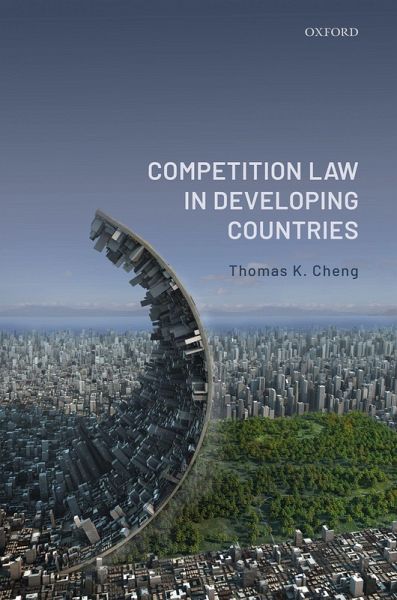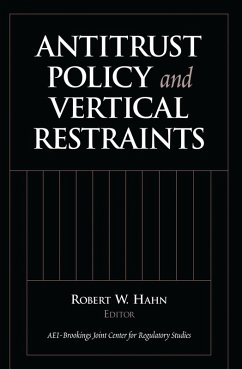
Competition Law in Developing Countries (eBook, PDF)
Versandkostenfrei!
Sofort per Download lieferbar
53,95 €
inkl. MwSt.
Weitere Ausgaben:

PAYBACK Punkte
27 °P sammeln!
This book brings together perspectives of development economics and law to tackle the relationship between competition law enforcement and economic development. It addresses the question of whether, and how, competition law enforcement helps to promote economic growth and development. This question is highly pertinent for developing countries largely because many developing countries have only adopted competition law in recent years: about thirty jurisdictions had in place a competition law in the early 1980s, and there are now more than 130 competition law regimes across the world, of which m...
This book brings together perspectives of development economics and law to tackle the relationship between competition law enforcement and economic development. It addresses the question of whether, and how, competition law enforcement helps to promote economic growth and development. This question is highly pertinent for developing countries largely because many developing countries have only adopted competition law in recent years: about thirty jurisdictions had in place a competition law in the early 1980s, and there are now more than 130 competition law regimes across the world, of which many are developing countries. The book proposes a customized approach to competition law enforcement for developing countries, set against the background of the academic and policy debate concerning convergence of competition law. The implicit premise of convergence is that there may exist one, or a few, correct approaches to competition law enforcement, which in most cases emanate from developed jurisdictions, that are applicable to all. This book rejects this assumption and argues that developing countries ought to tailor competition law enforcement to their own economic and political circumstances. In particular, it suggests how competition law enforcement can better incorporate development concerns without causing undue dilution of its traditional focus on protecting consumer welfare. It proposes ways in which approaches to competition law enforcement need to be adjusted to reflect the special economic characteristics of developing country economies and the more limited enforcement capacity of developing country competition authorities. Finally, it also addresses the long-running debate concerning the desirability and viability of industrial policy for developing countries. The author would like to acknowledge the Research Grants Council of Hong Kong for its generous support. The work in this book was fully supported by a grant from the Research Grants Council of Hong Kong (Project No. HKU 742412H).
Dieser Download kann aus rechtlichen Gründen nur mit Rechnungsadresse in A, B, BG, CY, CZ, D, DK, EW, E, FIN, F, GR, HR, H, IRL, I, LT, L, LR, M, NL, PL, P, R, S, SLO, SK ausgeliefert werden.













